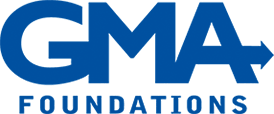
Many family foundations have taken the time to develop a values statement that guides board behavior and decisions. While a board may have this deeply-held set of values, the board members might not always agree on how to interpret them. Reality can be complex, and gray areas often replace what appears to be black and white on paper.
Moving past “it depends” can be challenging when applying the foundation’s values to a thorny decision. On a family board, ethical dilemmas are apt to become even more emotionally charged.
Activate your values statement
How does a family board find a common lens through which to identify and resolve ethical dilemmas? We recommend taking the values statement a step further. Develop a “protocol of cooperation” to translate the foundation’s values into a moral compass to guide the board’s work.
We use the term “protocol of cooperation” in place of “code of conduct.” Not everyone likes living under a code or being told that their conduct is out of line.
A protocol of cooperation represents a culture shift – where board members actively honor their values and one another by agreeing to adopt a certain mindset and behavior. The culture becomes vital to honest and productive discussion, about all of the board’s business.
Adopt a protocol of cooperation
Try this sample protocol of cooperation on for size. Use it as a framework for discussing a sample ethical dilemma, where two ‘rights’ stand in conflict with one another and the protocol might guide the board’s action. Find examples of ‘right versus right’ dilemmas below.
As trustee of this foundation, I agree to …
- Participate fully in fairness to my colleagues
- Act with integrity in the best interests of the foundation
- Maintain confidentiality and avoid abusing my position
- Be transparent about conflicts that might benefit me over the foundation’s interests
- Understand or ask questions about private foundation regulations
- Contribute to a positive environment for addressing conflict
- Work respectfully to resolve differences of opinion
- Listen to all perspectives and agree to consider compromise
Balancing two ‘rights’

The most challenging of ethical dilemmas are the right versus right dilemmas – when two values point to different and opposing action. Family boards sometimes have to balance what’s right for the foundation with what’s right for the family – because board members are loyal to both. The divided loyalty, which is unavoidable for family board members, creates a conflict of right versus right for some board members and can cloud their judgment.
The Institute for Global Ethics has named four types of right versus right dilemmas. Defining the foundation’s or board member’s ethical dilemma as one of these types could bring clarity to the problem and focus the necessary discussion. We’ve provided simple examples here, although you may have your own:
Truth versus loyalty
The truth is the organization’s work doesn’t fit our guidelines anymore, or it’s not a well-managed organization, but it is Granny’s favorite charity and we love Granny.
Individual versus community
Let’s fund our favorite charities instead of what our community might need. The money is still going to nonprofit organizations.
Short-term versus long-term
The needs in our community are growing. Do we spend down the foundation and potentially have greater impact now or exist in perpetuity and let our successors make a future impact?
Justice versus mercy
We have an attendance policy, but Auntie is absent again. Her absences exceed those allowable and she should be disqualified from board service; but she’s having a hard time with her teenage son.
Openly defining the dilemma in these terms may lead to a more productive discussion, particularly within a widely-adopted protocol of cooperation.
When considering the best approach, try to take family out of the picture. Think about how you would react if family were not involved. If the board is acting on behalf of the foundation, its duty of loyalty is to the foundation.
Navigating ethical dilemmas
If an action or decision stirs up uneasy feelings, step back. Reflect on the foundation’s values and protocol of cooperation, and try to:
- Define the ethical dilemma and determine if you have all the facts
- Name the issue and ask questions
- Consider whether there are any legal concerns
- Run it through your foundation’s values lens
- Use your protocol of cooperation as a framework for discussing the ethical dilemma; test a few solutions, taking into account family harmony, and plan your approach
- Consider the potential consequences before taking action
- Feel confident that the board has displayed moral courage and made an honorable decision
Contact Mary Phillips for ideas about developing a protocol of cooperation for your foundation board.
